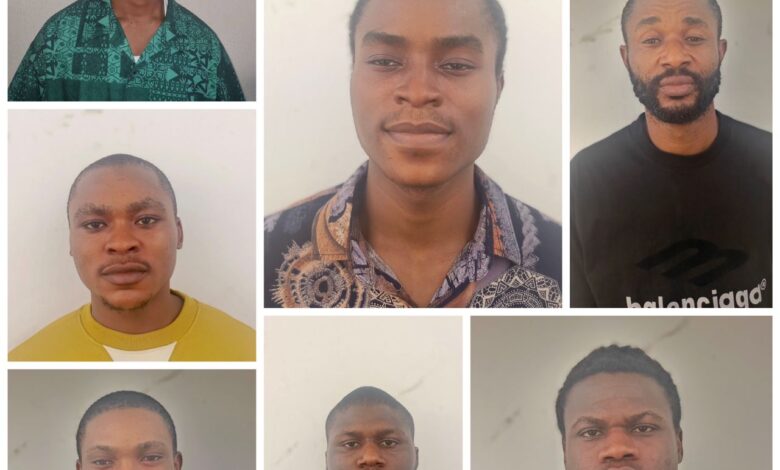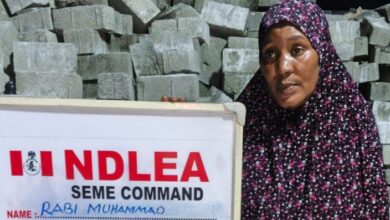Seven Bag Jail Terms for Internet Fraud in Calabar
The defendants pleaded guilty to the charges when they were read to them. In view of their pleas, prosecuting counsel, Khamis Mahmud, prayed the court to convict them as charged.

No fewer than seven individuals have been convicted and sentenced to six months’ imprisonment each for internet fraud in Calabar, the capital of Cross River State.
This followed the Uyo Zonal Directorate of the Economic and Financial Crimes Commission (EFCC) securing their conviction before Justice Ijeoma Ojukwu of the Federal High Court in Calabar on Wednesday, July 16, 2025.
The convicts are Victor Ekwonwa, Chukwudi Iwueke, Mbam Alexander, Ugorji Emmanuel, Joseph Ekwere Tom, Eze Daniel, and David Okeke.
EFCC disclosed that they were arraigned on separate one-count charges bordering on obtaining under pretence and money laundering.
The charge against Tom reads: “That you, Joseph Ekwere Tom, sometime in 2025, within the jurisdiction of this Honourable Court, did take possession and control of $500 (Five Hundred United States Dollars), knowing that the money formed part of the proceeds of an unlawful act, to wit: obtaining money by false pretence, and thereby committed an offence contrary to Section 18(2)(d) of the Money Laundering (Prevention and Prohibition) Act, 2022, and punishable under Section 18(3) of the same Act.”
The defendants pleaded guilty to the charges when they were read to them. In view of their pleas, prosecuting counsel, Khamis Mahmud, prayed the court to convict them as charged.
Consequently, Justice Ojukwu convicted and sentenced the convicts to six months’ imprisonment each – and six of them were given the option of paying a fine of ₦1 million, except for Alexander, who was given the option of a ₦500,000 fine.
The court also ordered Tom and Ekwonwa to restitute the sums of $500 and $100 respectively into the EFCC’s Recovery Account.
In the same vein, the judge ordered that all gadgets used in committing the crimes be forfeited to the Federal Government.
The Commission stated that all the convicts were arrested for internet related-crimes, charged to court, and subsequently jailed.







